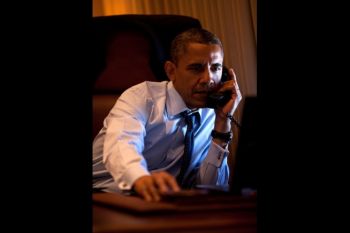By Thalif Deen
RIO DE JANEIRO, Jun 14 (TerraViva) When a reluctant George H.W. Bush, Sr., then U.S. president, changed his mind and decided at the eleventh hour to address the 1992 Earth Summit in Rio, he sounded defensive in his strong response to charges that the United States was one of the major powers responsible for the some of the world’s worst environmental ills – from greenhouse gases to conspicuous consumption.
“I didn’t come here to apologise,” Bush told world leaders in a defiant seven-minute speech, even as the IPS daily conference newspaper Terra Viva led off with the story in an arresting headline: “U.S. President Snubs His Nose at Rest of the World.”
In that U.S. presidential election year, Bush was virtually forced to attend the summit under political pressure from his Democratic rival Bill Clinton, who went on to win the presidency and beat Bush at the polls.
Twenty years later, President Barack Obama, who like Bush is running for re-election, has disappointed the United Nations by deciding to skip the Rio+20 summit, also known as the U.N. Conference on Sustainable Development.
The three-day summit, which begins Jun. 20, is to be attended by over 100 world leaders.
A U.N. source told IPS the list of participating world leaders is likely to be finalised next week because it is being updated almost on a daily basis.
But according to the White House, the U.S. delegation to the summit will be led not by Obama but by Secretary of State Hillary Clinton.
Meena Raman of the Malaysia-based Third World Network told IPS, “Given the stance of the United States thus far in the Rio+20 negotiations and the position they have taken in the climate change negotiations in Durban, it is may perhaps be a blessing that President Obama is not coming to Rio.”
Just as George Bush Sr. refused to show leadership in committing to changing production systems and consumption patterns by saying that U.S. lifestyles are not up for negotiation, officials in the Rio plus 20 process are refusing to even reaffirm the Rio principles, in particular that of common but differentiated responsibility, she pointed out.
“They are also backtracking on technology transfer, where they do not even want the word ‘transfer’ referred to,” Raman said.
Funding remains a contentious issue. On Thursday, delegates from the G77 bloc of developing countries walked out of negotiations on a green economy until commitments on “means of implementation” were made.
At the 2002 World Summit on Sustainable Development in Durban, South Africa, the U.S. refused to acknowledge its historic responsibility as the biggest emitter of greenhouse gases, said Raman.
“It is not making real ambitious and gravely needed emission cuts. It did not want any reference to equity and CBDR (common but differentiated responsibility) in Durban and wants to shift most of the responsibility for emission reductions to developing countries.
“Given the U.S. stance, we do not want President Obama or any U.S. leader to come to Rio to bury what was agreed in 1992 in Rio. We cannot expect the U.S. to show any leadership in truly wanting to save the planet and the poor. So it is better for President Obama to stay at home,” she said.
Phil Kline, senior campaigner at Greenpeace USA, told IPS, “We are disappointed President Obama did not show leadership by coming to Rio, but much worse than that is the U.S. standing in the way of ending the plunder of the High Seas at Rio+20.”
He said the majority of countries want to move forward and kickstart a High Seas Biodiversity Agreement at Rio. “If President Obama wants to prove he cares about sustainable development, he should instruct his negotiators to finally protect the High Seas,” Kline said.
Tricia O’ Rourke of Oxfam International told IPS, “What is important is that the U.S. negotiators arrive in Rio ready and willing to show real leadership with substantive commitments to establish a new set of global development goals that address both poverty and environmental sustainability.”








 Add to Google
Add to Google







